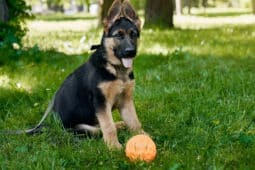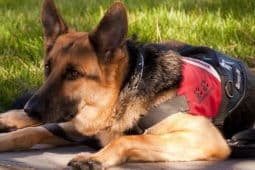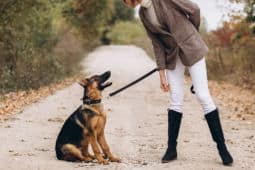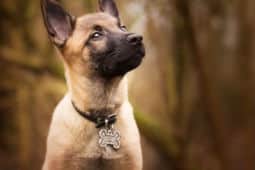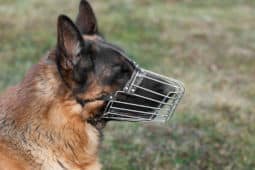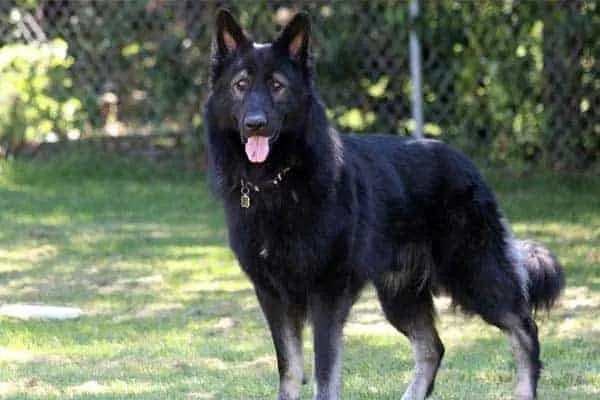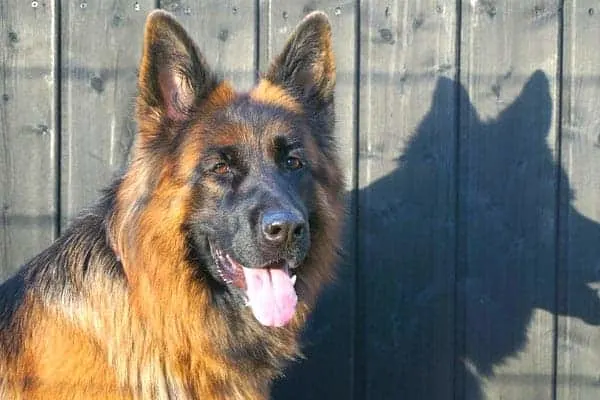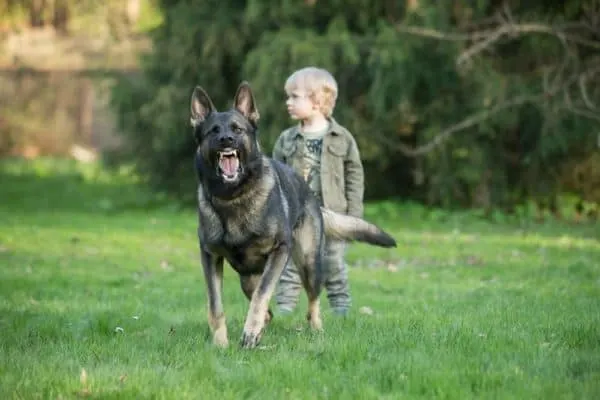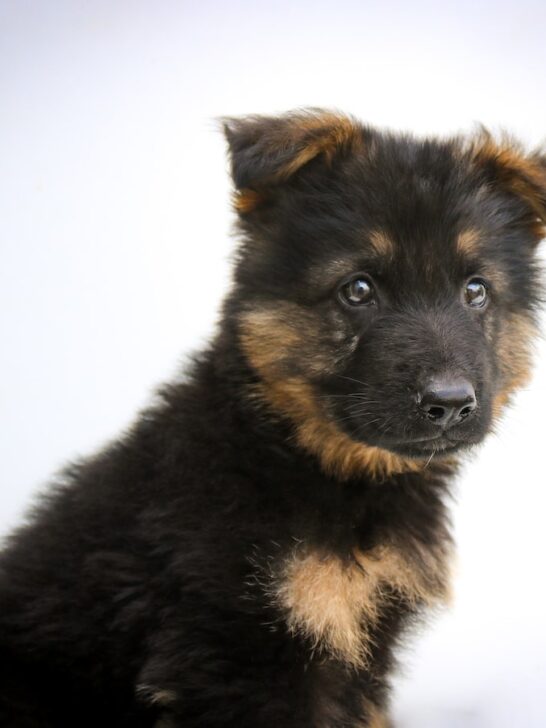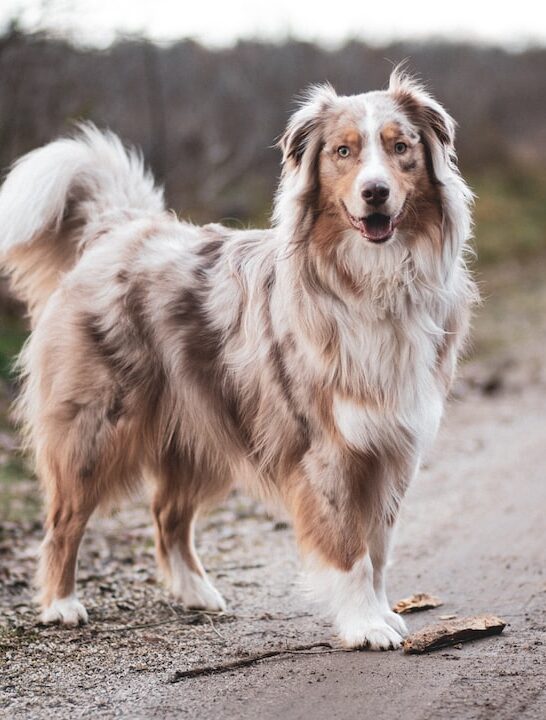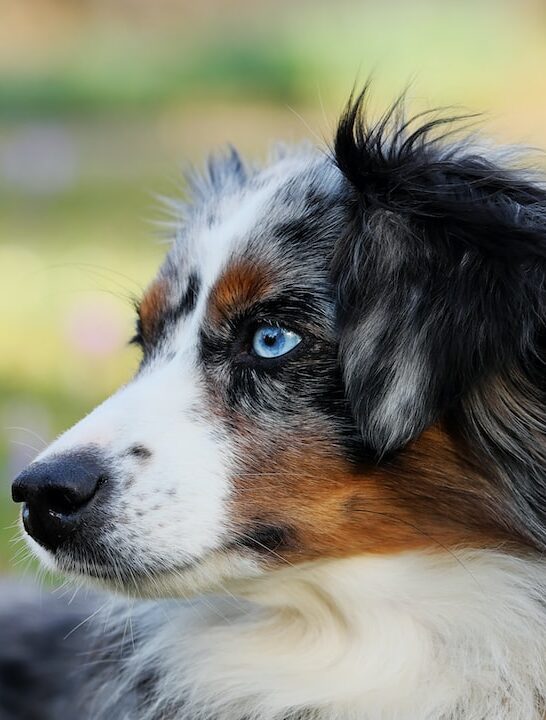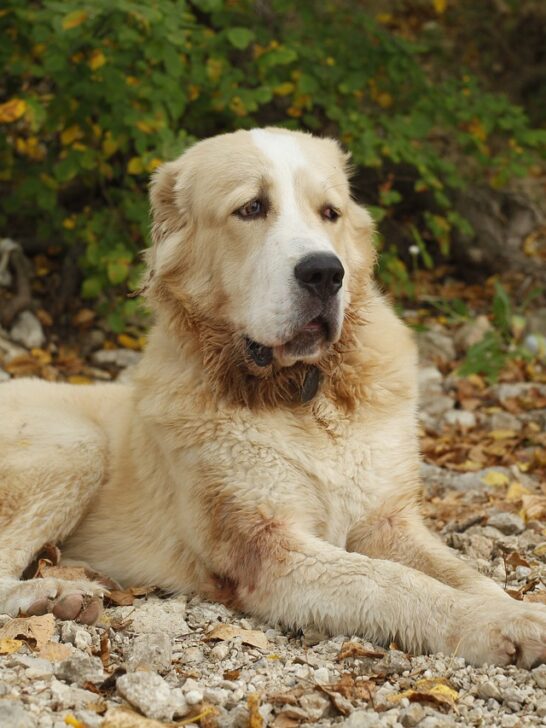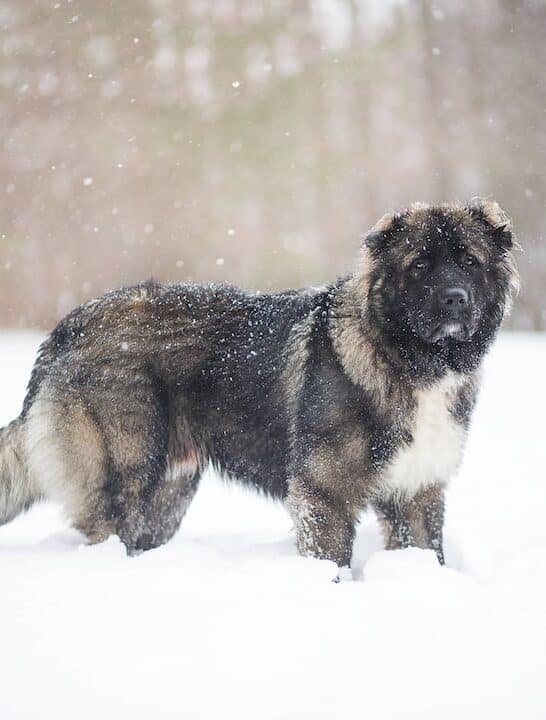King Shepherd vs German Shepherd: Which Is The Right Dog Breed For You?
Many people are familiar with the well-known German Shepherd dog breed.
The breed’s striking tan and black coat, sharp ears, long nose, and protective but friendly personality have long made it a good choice for many families.
However, people searching for the perfect dog companion may be less familiar with King Shepherd.
These dogs look quite similar to the German Shepherd but have been crossed with Alaskan Malamutes and Great Pyrenees dogs in order to create a specific, different breed.
Choosing the right dog means selecting a breed that suits both your personality, your living situation, and your energy and social levels.
Although King Shepherds and German Shepherds share many of the same traits, because they have different backgrounds, they also have different needs.
Understanding both breeds can better help potential owners select the best choice for a companion.
There is no single difference between King Shepherd and the German Shepherd. Instead, the breeds have different appearances, coat lengths, and sizes.
In addition, they each have different energy levels and temperaments.
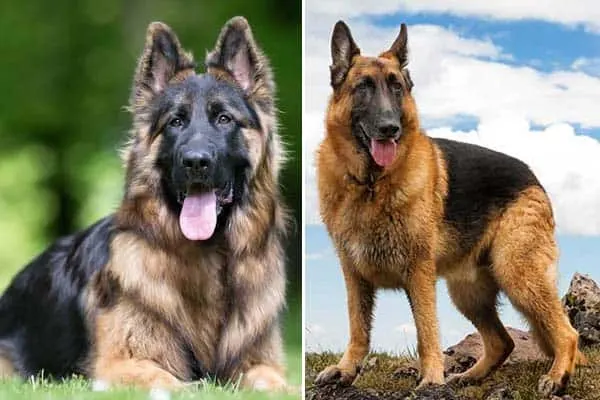
What Were German Shepherds Originally Bred For?
Over the years, due to their energy level, intelligence, and trainability, German Shepherds have been used for many different working tasks.
They make excellent guide dogs, are often used as police dogs, and also work well as search and rescue dogs. However, German Shepherds were originally bred to herd sheep.
The German Shepherd breed standard began in 1889 when Max von Stephanitz became intrigued by the appearance of the herding dogs used by Germans.
According to PetMD, Stephanitz specifically chose dogs that had a wolf-like appearance, and this has been a notable feature of the breed ever since.
Who Created the King Shepherd Breed and Why?
The King Shepherd breed began in the early 1990s when Shelly Watts-Cross and David Turkheimer bred American and European German Shepherds with Alaskan Malamutes and Great Pyrenees dogs.
These dogs were also crossed with Shiloh Shepherds, which are a mix of German Shepherd and Alaskan Malamute.
The goal of the breeders was to create a herding breed that could serve as a wonderful home companion, protector, or working dog.
They wanted a breed with a temperament similar to a German Shepherd but hoped to breed out health problems such as hip dysplasia, which is common in German Shepherds.
What Do German Shepherds Look Like?
According to the American Kennel Club, German Shepherd females should weigh between 50 and 70 pounds and should stand between 22 and 24 inches tall at the shoulder.
On the other hand, male German Shepherds typically grow to between 65 and 90 pounds and stand between 24 and 26 inches at the shoulder.
These dogs have thick black and tan or black and red fur. Occasionally German Shepherds can be found in different color variations, such as blue and brown, black, or white.
The fur actually features two coats—an undercoat for warmth with a thick, somewhat coarser overcoat that helps protect the dog from weather. The coat is medium in length.
German Shepherds require brushing about twice a week. This keeps the coat from matting and can also help to remove dead fur from the undercoat. This can help keep shedding under control.
Does a King Shepherd Look Different Than a German Shepherd?
King Shepherds are not recognized by the American Kennel Club, but the breed still has many sizes and appearance standards, and these vary from the German Shepherd.
Female King Shepherds should weigh between 75 and 110 pounds, while males should weigh between 90 and 150 pounds.
Female King Shepherds grow to between 25 and 28 inches at the shoulder, while males grow to between 28 and 33 inches at the shoulder.
King Shepherds generally have a thicker, longer, or fluffier coat than German Shepherds, due to their Alaskan Malamute and Great Pyrenees interbreeding.
However, there are two coat varieties available. The first is coarse-haired, which is a straight coat similar to that of a German Shepherd.
The second coat, which is more commonly associated with the breed, is long, light, and sometimes wavy.
The coat color can be black and tan or red similar to German Shepherds. However, these dogs can also be found in a range of colors including solid tan, solid black, cream, gold, or with black and silver markings.
Because their coat is almost always longer or thicker than a German Shepherd’s, King Shepherds require slightly more grooming.
Daily brushing can help to clean out dead fur from the undercoat while also keeping shedding under control.
However, because the dog’s topcoat is weather-resistant, this dog breed does not require frequent bathing.
What is a German Shepherd’s Personality Like?
German Shepherds are widely recognized for their protective attitude toward their homes and families. They are often known as intelligent, devoted dogs.
They are also regarded as highly trainable and can be trained either to be excellent pets and home companions or for a variety of different working tasks.
German Shepherds are generally considered to be excellent family dogs and are often very gentle around pets and children.
However, they can be aloof with strangers, and they may also be aggressive towards other dogs if they consider them a threat to their territory.
What is a King Shepherd’s Personality Like?
King Shepherds were bred to have similar temperaments and personalities to German Shepherds. They are intelligent and are considered easy to train.
They make excellent family pets but can also be trained for a variety of tasks, including herding, police work, or as a guide or assistance dog. King Shepherds are also protective of their homes and families.
King Shepherds are not shy, so they are usually a bit more friendly to strangers than German Shepherds. They are also good around children and other small animals such as cats.
How Energetic Are German Shepherds and King Shepherds?
Both German Shepherds and King Shepherds are energetic dogs. They require long, brisk walks daily. They may also enjoy going for a jog.
In addition, it is best to offer frequent training for both German Shepherds and King Shepherds. Because these dogs are so intelligent, their minds are often very active.
This means they crave challenges and prefer to have their minds occupied.
Training, such as obedience training or being asked to heel while walking, can help soothe the dog’s energy while also keeping the mind active and engaged.
If either German Shepherds or King Shepherds do not receive enough physical exercise combined with mental stimulation, they can become restless. This can lead to destructive behavioral problems.
How Long Do German Shepherds Live?
On average, German Shepherds tend to live for 10 to 13 years. Dogs can achieve this lifespan when they are routinely seen and cared for by a veterinarian and receive the proper vaccinations, diet, and care.
Because of the way German Shepherds have been bred over the years to maintain a breed appearance standard, they can face some serious health issues, particularly as they age.
German Shepherds are prone to canine hip dysplasia and elbow dysplasia. These are conditions where the socket of the hip or elbow does not grow large enough, so the joint can become dislocated.
Hip and elbow dysplasia can lead to painful arthritis and other joint problems as the dog ages.
Due to their long noses, German Shepherds are also prone to nasal infections caused by the Aspergillus mold.
This fungus is found commonly in dust, grass, hay, and straw. Although the infection can be treated by a veterinarian, it is sometimes incurable.
How Long Do King Shepherds Live?
King Shepherds were bred to be sturdier and somewhat healthier than their German Shepherd counterparts.
A key reason that the King Shepherd breed was created was to help eliminate some of the more common health issues that German Shepherds encounter.
King Shepherds are robust dogs, but because they are larger, they actually tend to have slightly shorter lifespans than German Shepherds.
Typically, King Shepherds have a lifespan that ranges between 10 and 13 years, although most dogs will only live between 10 and 11 years.
Although they are generally healthier than German Shepherds, King Shepherds face many of the same health problems, although these may be less common in the King Shepherd breed.
Hip and elbow dysplasia can still occur, for example, and may cause health problems as the dog ages.
In addition, much like German Shepherds, King Shepherds are prone to Von Willebrand disease. This is a genetic blood disorder that causes clotting difficulty.
Because it is genetic, many King Shepherds have inherited this condition from their German Shepherd parents or ancestors.
Which dog is right for you?
King Shepherds and German Shepherds share many of the same traits and appearance characteristics. Which dog is the better choice depends on the particular person and situation.
For those who are looking for a dog that is slightly more protective and less friendly with strangers, the German Shepherd may be a better choice.
Because of their hybrid breeding and the traits they have inherited from other dog breeds, such as the Alaskan Malamute, King Shepherds tend to be less wary of strangers.
If potential dog owners are worried about health issues, on the other hand, King Shepherd is often the best choice.
Because they have been cross-bred with other dogs, they often face less frequent health issues than German Shepherds.
However, King Shepherds can still encounter health issues, and their lifespans are often equal to or even shorter than those of the German Shepherd.
Size is also a factor to consider when choosing either a King Shepherd or a German Shepherd. German Shepherds are somewhat smaller than King Shepherds. They also generally require less grooming.
A Commitment To Properly Caring For Your Dog
People who are interested in buying or adopting either a King Shepherd or a German Shepherd should always be prepared to invest a great deal of time and energy into both exercising and training the dog.
Both King and German Shepherds are energetic and intelligent. This means they require constant stimulation.
King Shepherds and German Shepherds are both smart, so they generally enjoy training. However, because they are so energetic, keeping them focused on training can sometimes be a challenge.
Because of this, owners of King Shepherds and German Shepherds need to have a good amount of patience.
Both German Shepherds and King Shepherds make great family pets and are gentle around children and small animals such as cats.
German Shepherds, however, can often be territorial or nervous around other dogs if they do not consider those dogs to be members of the family.
In the end, choosing either King Shepherd or German Shepherd comes down to weighing a number of factors. Which dog is best for you depends on your individual personality and needs.
Videos to Help You Choose the Right Companion Dog Breed
For more information on the German Shepherd breed, and to get a good feel for the dog’s appearance and personality, the American Kennel Club has posted a YouTube video discussing the breed.
Here, the AKC informs viewers about the breed standards, the dog’s appearance, and what owners can expect when they adopt a German Shepherd.
Dog vs Dog Breed Comparison has also posted an informative video on YouTube that outlines the key differences between King Shepherd and German Shepherd breeds.
By watching this video, potential dog owners can see the difference between dogs and perhaps get a better feel for which dog might be the best choice for them.















